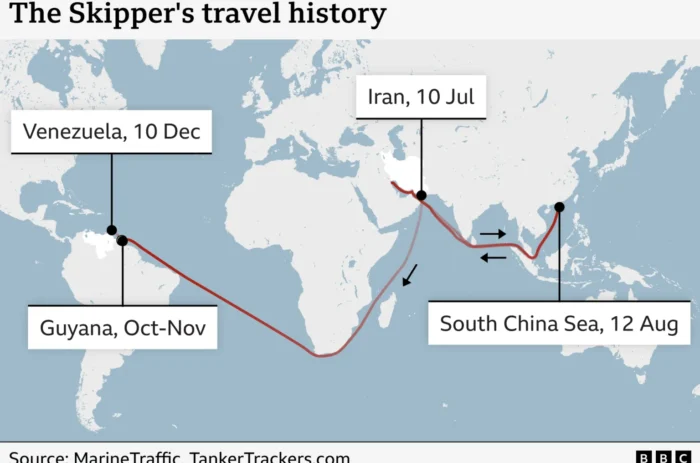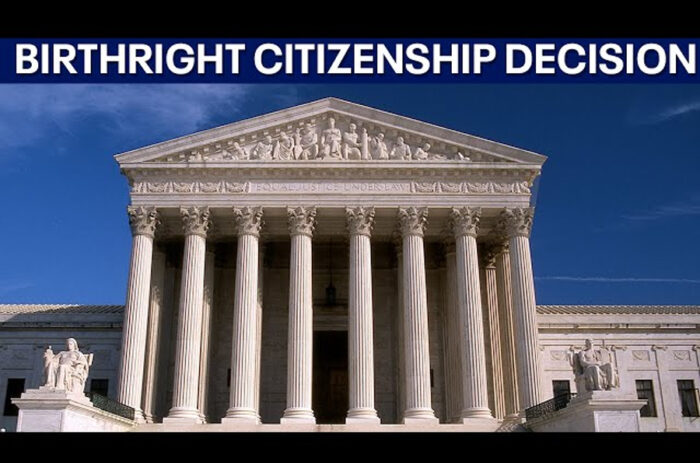redo Jump to...
print Print...
[NOTE: *The P5+1 is a group of countries which in 2006 joined the diplomatic efforts to come to an agreement with Iran in regard to its nuclear program. The term refers to the five permanent members of the UN Security Council (who have nuclear weapons): the U.S., Russia, China, United Kingdom and France) plus Germany. Germany is the key trading partner of Iran. Iran’s nuclear program depends mainly upon German products and services. Around 50 German firms have their own branch offices in Iran and more than 12,000 firms have their own trade representatives in Iran. Several renowned German companies are involved in major Iranian infrastructure projects, especially in the petrochemical sector.]
(by Batsheva Sobelman, The Chicago Tribune) JERUSALEM – With talks between Iran and six world powers set to resume in Geneva yesterday, Israeli leaders issued a stern warning to the so-called P5 Plus One* diplomatic group: don’t ease pressure on Iran.

Benjamin Netanyahu
It would be a “historic mistake” to relax pressure on Iran “a moment before sanctions achieve their goal,” Prime Minister Benjamin Netanyahu told Israel’s parliament Monday.
In a statement issued ahead of the talks Tuesday morning, Israel’s security cabinet stressed that the opportunity for reaching a genuine diplomatic solution to dismantle Iran’s military nuclear program could bear fruit only if the international community “does not relent” and continues pressure on Iran.
“We want the Geneva talks to succeed. We are not closing the door on diplomacy,” Minister of Strategic and Intelligence Affairs Yuval Steinitz said Monday. Israel will endorse a “satisfactory agreement,” he said.
Steinitz defined “satisfactory” as different from agreements previously reached with, and breached by, North Korea, which now has several nuclear weapons. He said North Korea is a cautionary example of the “impact and ramifications of bad agreements.”
The minister pointed to an agreement with Libya, which gave up its enrichment program and effectively shut down its nuclear program a decade ago, as a good example.
If Iran wants civilian nuclear energy as it claims, it must stop enriching uranium and give up material enriched so far, Steinitz said.
The ministers said Iran could create a “win-win situation” if it gives up enrichment and obtains nuclear fuel from a third country.
Netanyahu contended that despite Iran’s declared commitment to pursuing only civilian nuclear energy, it has been working for two decades to obtain nuclear weapons capabilities, systematically defying United Nations resolutions. While negotiating with the West, Iran has amassed several tons of enriched uranium in recent years, Netanyahu said.
Israel will embrace a “genuine diplomatic solution which would bring about the dismantling of Iran’s nuclear weapons program,” said Netanyahu. This will be possible, the prime minister said, if Iran complies with previous U.N. Security Council resolutions and other steps, including stopping all nuclear enrichment, removing stockpiled enriched uranium, dismantling facilities near Qom and Natanz and halting the plutonium track. [A nuclear weapon needs enriched uranium and can be made with or without plutonium.]
The West appears to have already made a concession to Iran, “a de-facto recognition of Iran’s right to enrich uranium,” said analyst Giora Eiland, Israel’s former national security advisor.
An agreement that would keep Iran from military nuclear capability and would be “tolerable” to Israel is one that would remove low-grade enriched uranium from Iran to a third country that would convert it to fuel rods for Iran to use to produce electricity, Eiland said. Since reversing the fuel-rod conversion process is “difficult to impossible,” such a move would hold Iran’s military nuclear ambitions at bay, Eiland told media. …
…A recent public opinion poll, the monthly Peace Index conducted by the Israel Democracy Institute, showed that two-thirds of Israel’s Jewish population doubts the U.S. will fulfill President Obama’s promise to prevent Iran from developing nuclear weapons at all costs and distrusts Iran and Western powers. …
Reprinted here for educational purposes only. May not be reproduced on other websites without permission from The Chicago Tribune. Visit the website at chicagotribune.com.
Questions
1. a) Who is Benjamin Netanyahu?
b) What warning did Mr. Netanyahu make on Monday in a speech before Israel’s parliament?
2. What does the Israeli government want Iran to do regarding its nuclear program? Be specific.
3. Define the following terms as used in the article:
- sanctions
- P5+1
- diplomacy
- uranium enrichment
- contended
- concession
4. a) What should the P5+1 countries learn from North Korea, according to Israel’s Minister of Strategic and Intelligence Affairs?
b) Which country does Mr. Steinitz say is a good example to the P5+1 countries?
5. a) What promise did President Obama make regarding Iran’s nuclear weapons program?
b) How do most of Israel’s Jewish population view this promise?
c) What do you think: Should President Obama have made this promise? Will the President keep this promise? Explain your answer.
6. Why are the stakes so high for Isreal? Why are they “making such a big deal” out of Iran’s nuclear program?
Background
ON URANIUM ENRICHMENT:
Enriched uranium is a critical component for both civil nuclear power generation and military nuclear weapons. The UN’s International Atomic Energy Agency attempts to monitor and control enriched uranium supplies and processes in its efforts to ensure nuclear power generation safety and curb nuclear weapons proliferation (buildup).
What is uranium and where is it found?
Uranium is a radioactive element that can be used in nuclear weapons. It is found in nature — in hard rock or sandstone — throughout the world.
What is highly-enriched uranium (HEU)?
HEU is a form of uranium in which the isotope uranium-235 has been increased from its average natural level of 0.7 percent of uranium ore to greater than 20 percent.
What is plutonium and where is it found?
Plutonium is a man-made radioactive element that can be used in nuclear weapons. Only trace amounts of plutonium are found in nature. Almost all existing plutonium is a by-product of nuclear reactors.
Are there sizeable supplies of uranium and plutonium?
Yes. There are huge resources of uranium throughout the world. The human race has produced more than two thousand tons of highly enriched uranium and plutonium.
How long would it take to build a nuclear weapon?
A decade, even if the necessary technology, funding, equipment and scientific expertise were available, due to the difficulties of producing fissile material. If a group started with fissile material obtained elsewhere, it could make an elementary nuclear weapon in less than one year.
Does having a nuclear reactor help in building a nuclear weapon?
Yes. Several states have used civilian nuclear reactors as a cover to make nuclear weapons. The “spent fuel” waste produced by a civilian reactor contains plutonium that, if separated out, can be used to make a bomb. (Q&A from nuclearterror.org/faq.html)
IRAN’S NUCLEAR PROGRAM:
- Iran’s 20 year secret nuclear program was discovered in 2002. Iran says its program is for fuel purposes only, but it has been working on uranium enrichment which is used to make nuclear bombs. [NOTE ON URANIUM ENRICHMENT: Enriched uranium is a critical component for both civil nuclear power generation and military nuclear weapons. The International Atomic Energy Agency attempts to monitor and control enriched uranium supplies and processes in its efforts to ensure nuclear power generation safety and curb nuclear weapons proliferation (buildup).]
- Under the United Nations’ NPT (Non Proliferation Treaty) countries are not allowed to make nuclear weapons (except for the 5 that had nuclear weapons prior to the treaty – the U.S., Russia, China, France, the United Kingdom).
- Safeguards are used to verify compliance with the Treaty through inspections conducted by the UN’s nuclear watchdog, the IAEA (International Atomic Energy Agency).
- The IAEA has consistently stated it is unable to conclude that Iran’s nuclear program is entirely peaceful.
- The IAEA issued a report on Sept. 15, 2008 that said Iran has repeatedly blocked an investigation into its nuclear program and the probe is now deadlocked.
- The U.N. Security Council has already imposed four sets of sanctions on Iran over its nuclear defiance. Despite the sanctions, Iran has refused to end its nuclear program.
- A group of U.S. and Russian scientists said in a report issued in May 2009 that Iran could produce a simple nuclear device in one to three years and a nuclear warhead in another five years after that. The study, published by the nonpartisan EastWest Institute, also said Iran is making advances in rocket technology and could develop a ballistic missile capable of firing a 2,200-pound nuclear warhead up to 1,200 miles “in perhaps six to eight years.”
- The Iranian government has called for the destruction of Israel on numerous occasions. It is believed that once obtained, Iranian President Ahmadinejad would use nuclear weapons against Israel.
Daily “Answers” emails are provided for Daily News Articles, Tuesday’s World Events and Friday’s News Quiz.




